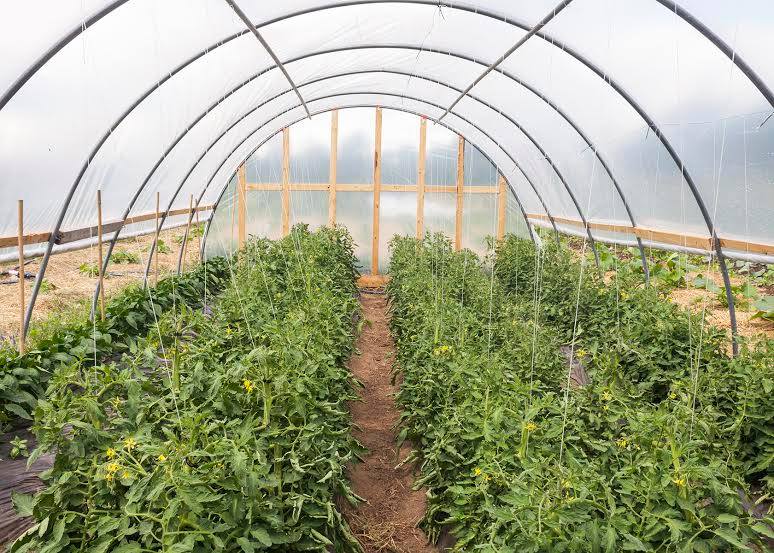Massachusetts Overtime Exemptions – What You Need to Know
If you’re a farmer hiring employees in Massachusetts, navigating the rules of the road can be challenging. This blog post highlights a recent court ruling in the Commonwealth that could affect when farmers pay their workers overtime.
Overtime laws require employers to pay one and a half times the regular pay rates when an employee works more than forty hours in a week. Both the federal and state overtime laws include exemptions to this requirement for certain types of work.
The Massachusetts overtime laws include an exemption for agricultural and farming workers. However, the Massachusetts Supreme Judicial Court recently decided a case that affects what is considered agricultural and farming work.
In the case of Arias-Villano v. Chang & Sons Enterprises, Inc., the highest Massachusetts court determined that the agricultural exemption only applies to a very narrow type of agricultural work – the planting, raising, and harvesting of crops. The exemption does not apply to post-harvest activities, for example cleaning, sorting, and packaging produce, even if related to the farming operations.
Federal Overtime Exemption
The federal overtime exemption for agricultural workers is less restrictive than the Massachusetts exemption. However, the Court in Arias-Villano compared the federal definition of agriculture with the Massachusetts definition. Employers in Massachusetts are required to fulfill the requirements of the Massachusetts overtime requirements; the federal requirements are provided as a basis for the more restrictive definition used in Massachusetts.
The federal Fair Labor Standards Act includes an exemption to the overtime pay requirements for agricultural workers, but agricultural work is defined to include both farming activities, including growing and harvesting crops, and certain post-harvest activities, including preparation for sale.
Specifically, the exemption includes “farming in all its branches … and any practices … performed by a farmer or on a farm as an incident to or in conjunction with such farming operations.” (FLSA Sec. 203(f)).
Work that is simply in conjunction with a farming operation qualifies for the agricultural overtime exemption, including post-harvest packing, sorting, and transportation. Food manufacturing, however, is not qualified for this exemption. (https://www.dol.gov/agencies/whd/fact-sheets/12-flsa-agriculture)
Massachusetts Overtime Exemption
In contrast to the federal agricultural exemption, the Massachusetts overtime exemption defines agriculture as “labor on a farm and the growing and harvesting of agricultural, floricultural, and horticultural commodities.” (M.G.L. c. 151, §2).
The definition of agriculture under the Massachusetts overtime exemption does not include post-harvest activities, nor does it allow for the exemption of work that is incidental to farming operations, unlike the federal exemption.
Arias-Villano and What’s Changed
In Arias-Villano, a group of employees who worked at a bean sprout company sued for overtime pay. The company grows, harvests, packages, and distributes bean sprouts in a hydroponic operation. These employees were responsible for cleaning, sorting, weighing, and packaging the sprouts and cleaning the facility, but were not responsible for growing or harvesting the sprouts. The employer claimed that overtime pay was not applicable because the company was engaged in agricultural and farming activities.
However, the Court determined that the responsibilities of these employees (cleaning, sorting, weighing, and packaging sprouts) were not agricultural and farming activities under the Massachusetts overtime law. The Court determined that Massachusetts had intended to adopt a narrow exemption, and intentionally modified the definition of agriculture from that used in the federal statute.
So, after this decision, if an employee is engaged in post-harvest activities and is working more than forty hours per week, the employee must be paid overtime wages under the Massachusetts overtime laws. Activities such as the harvesting of crops, planting of seeds, and maintenance of a field would be considered exempt activities under the Massachusetts exemption. However, activities that are post-harvest, including cleaning, grading, sorting, packaging, and transporting agricultural commodities would not be exempted, and the employer would be required to pay the overtime rate.
The Court and the Massachusetts Department of Labor Standards have not addressed if overtime must be paid if an employee works both in growing and harvesting (exempted) activities, as well as post-harvest (non-exempted) activities.
If you’re a farmer hiring workers in Massachusetts and you need help figuring out how employment laws apply to your operation, contact the Legal Food Hub at legalfoodhub@clf.org and check out our employment law resources here.
See how other states are dealing with Agricultural Employment Law:
New York may join 4 states requiring farmworker overtime pay
Requiring overtime on New York farms would raise labor costs 17%
Agriculture reacts to California’s new overtime laws
Lawsuit seeks to extend overtime pay for Washington farm workers
Liz Sharpe JD Candidate, 2020, Seton Hall University
